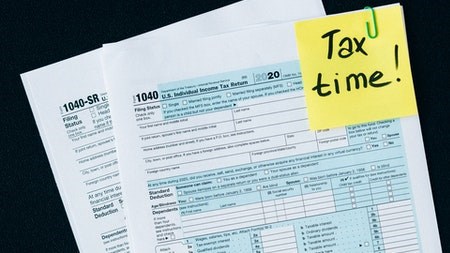Last year an approximate 60% of South Africans had to dip into their savings to cover expenses. As indicated in a recent Deloitte survey, 41% of South African’s are continuing to spend more than they earn, with 70% depleting their monthly income entirely. This is not surprising when you consider the rising year-on-year increases for food and non-alcoholic beverages by 6.7%, housing and utilities 2.3%, and transport 15.3%.
As of May, the City of Johannesburg announced electricity rates were to increase by 14.6%, sanitation and water by 6.8%, refusal removal 4.3%, and property rates by 2%. It’s no different for Cape Town and Durban with electricity increases of 13.5% and 14.9% respectively.
The problem is that such increases are impacting the entire economy and putting downward pressure on consumer spending. “If anything, the current environment has highlighted the need to save and to always have emergency funds,” says Thami Cele, Head: Savings and Investments, Absa Everyday Banking.
“Ideally, as research indicates, households should, at any one time, have enough savings to cover monthly ‘essential’ expenses enough for three months. That’s the ideal, but the longer the savings buffer, obviously the better, and for many reasons,” says Cele.
“First is the happiness factor that is brought about by being able to provide for your family, and it promotes the ‘giving’ factor. Secondly having savings promotes a more focused and productive mindset. Finally, savings means more people can invest for a longer term in financial products like equities and other high return/risk investment vehicles.”
Long-term savings
Long-term savings are usually those related to retirement/wealth-building, high return/risk products where capital is not guaranteed by banks, and share/unit trust purchase and property investment. These are generally affordable by those who are disciplined at saving and are likely to already have short-term savings enough not to dip into their longer-term savings pool.
Short-term savings
It is the short-term savings where immediate benefits can be realised, and as Cele suggests, start the journey of the discipline required to create at least the three-month buffer. And the most likely place to start is with banking institutions. “Bank’s guarantee funds at relatively good interest rates, which are ideal for those who have goals around saving for a deposit on a home, for travel, and more importantly, for unplanned but critical situations and emergencies.
“However, a savings culture has to start with the ‘why’. Why do you need to save? What are the goal/s or the purpose? Having established that comes an appreciation of wealth building, and it is critical to start immediately so that the entire household can foster a healthy attitude towards how they spend money, and what can be achieved long-term through savings,” says Cele, who provides what he calls ‘key SMARTS’ to start the process.
The first of those is devoting time enough to review and manage money, and aligned to that is undertaking a financial review. “Ensure you continuously review all of your money movements like debits in bank statements and cash withdrawals. It is surprising how much you can identify as non-essential, especially cash withdrawals. This is also why most transactions should be performed through clearly traceable and cost-effective means like card swipes, debit/stop orders, etc. And further, by doing a financial review, you are able to reconcile.”
This process is ongoing until a complete understanding of the household’s financial situation is understood. Only then can a determination be made as to the specific budget for savings, and whether that is to be a percentage or a set amount.
Interest rate cycles
One of the concerns from many people is how to maintain a set savings amount given interest rate cycles. Of this Cele says that increasing rates will always benefit customers that avail themselves with Absa’s Prime Linked Product Offerings, “because as interest rates go up, so too do the interest rates linked to savings accounts.
“In a downward interest rate cycle, fixed deposit products are worth considering because interest rates are fixed regardless of Prime Interest Rates movements. In the same way that the commitment is made to save, so too must be the commitment to monitor how interest rates are impacting savings, and thereafter to make appropriate decisions.”
For example, interest rates are currently low, which means that saving through an existing home loan helps reduce the interest amount on that loan. “The debt side of this has a compounding effect, as well as helping to settle the home loan earlier through accelerated payments,” says Cele. Also bear in mind that any additional funds invested into a home loan may also be immediately accessed, which is ideal in an emergency.
Access to savings
Instant access to savings is also possible from Absa’s TruSave and Depositor Plus accounts. TruSave requires a minimum deposit of R50 and Depositor Plus R15 000. Another one is, the Notice Product, which requires a deposit of R1 000, allows for up to 50% instant access or notice of the entire amount withdrawal of 15 days. And if you have R250 000 entry deposit into the Investor Plus plan, only 24 hours withdrawal notice is required. All of these are linked to the prime interest rate, and allow continuous contributions to the accounts.
Absa also provides products linked to a fixed interest rate and products with fixed contribution cycles. Some are also long-term, which are high-risk but reward-linked. And regardless of the fact it is a bank, Absa also offers non-bank guaranteed opportunities through its financial advisors, inclusive of unit trusts and stock acquisition. Tax-free investments are also popular says Cele.
“Even if you can’t see your way to finding savings right now, the focus should be on the journey to get there. Any acceleration of debt reduction is a good thing, so that’s where you should start - settling debt as quickly as possible, so that money can be put to good use towards saving and investing.”




